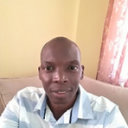Re/Views & Critique
Forging Ogun's Presence in a Plastic Society
A review of (or essay about)
Abstract
The aim of this article is two-fold. It will analyse how Ogun principles inThe Interpretershave been compromised and discarded by individuals transformed by an alien culture. The article will also describe and evaluate the ways in which the Ogun presence manifests itself in a society that is reluctant to look at the past in order to forge a path of self-discovery. In the postmodern age the concept of identity and purpose calls for a psychological weaning from imported cultures with their hegemonic footprints. The absorption of an alien culture is at times not selectively done by members of these African societies. In effect, they find themselves technologically propelled into an environment that transforms them from the inside and spreads like a cancer.
Keywords: Ogun; culture; identity, transition, myth
Introduction
As part of the cosmogony of the Yoruba oral tradition, the gods become a form of reference to human behaviour. They become like nodal points tracing the ideology of one’s cultural development. Scholars believe that myths can be in two forms, primary and secondary. Maduagwu (2011:99) identifies Ogun as a primary myth and states that, “primary myths often constitute cultural projections of knowledge that is meant to be accepted as literal truths.” Ogun thus occupies a privileged place in Yoruba cosmogony and as Ebeogu (1980:84) states, Ogun is envisioned as “the first son of Odudwa, the founding father of the Yoruba race.” Soyinka has expanded Yoruba cosmogony to incorporate a world-view that is not exclusive to the Yoruba people. His favourite god, Ogun, becomes a god without communal boundaries, a god who can be just as important to the African continent as he is to the Yoruba community. Ogun then becomes a vital ingredient in the redemption of man. In the words of Soyinka,
…nothing but the will [for that alone is left untouched] rescues being from annihilation within the abyss. Ogun is the embodiment of Will and the Will is the paradoxical truth of destructiveness and creativeness in acting man. Only one who has undergone the experience of disintegration, whose spirit has been tested and whose psychic resources laid under stress by the forces most inimical to individual assertion, only he can understand and be the force of fusion between the two contradictions. (1988:27)
This article will argue that the will is fundamental in creating a desired identity even though the will does not automatically subvert itself to its surroundings.
It is the will that is pivotal in explaining the Ogun presence in society because the will ennobles certain essential qualities of life. It is through mythology that Soyinka seeks to rekindle the love for ideals. Ugwuanyi (2011:86) states that, “for Soyinka, we can only have validated our ethical conviction by the extent to which it has led us to, and sustained our action.” If Soyinka stands against injustice and tyranny then Ogun is the weapon with which his literature confronts these ills. The Yoruba god Ogun inculcates two primary forces: creativity and destruction, which Soyinka harnesses in his works to address important issues of the day. Ato Quayson (1997:67) states that, “the Ogun myth offers a huge payout of ‘sign, symbol, and agency’ that guides his thinking in various directions simultaneously but still keeps it with the same conceptual ambit provided by the myth.”
This myth shows Ogun in transition and indicates the qualities necessary to ensure a successful transition. It is not, however, a transition that is bereft of problems for much like Ogun’s traits there is a lot of soul searching and internal upheavals to negotiate. Maduagwu (2011:109) states that, “Ogun reflects man’s turbulent, unsteady and uncontrollable characteristics as are manifest in creative and destructive activities.” Using this framework as a point of departure, this article proposes that society is in transition and that the behaviour of characters in negotiating this abyss on a quest for a spiritual identity is crucial. Ogun can also be seen as being much more than a representation of will. In the words of Quayson,
Ogun is a culture hero and a revolutionary and his actions map out the parameters of both hubris and creativity. Also crucial in Soyinka’s scheme is that Ogun sacrifices himself to affirm the community’s sense of corporate identity. What Ogun does for the gods is a model for what culture heroes do for their communities. (1997:70)
In other words, human existence needs to transcend its mortal boundaries and incorporate elements from the spiritual realm for it to ultimately fulfil its potential. There is a need for inter-relationships in that oneness does not emanate from an individual conception of life but from a three-way engagement of the world of the living, the dead and the as yet unborn. It is for this reason that Zargar (2012:89) states, “Soyinka can also be considered as an ethno-centrist, because his works concern a Yoruba centred value system and explain its worldview via the Yoruba culture.”It is a value system that is symbiotic in its nature not one that is prescriptive for that can only create in the individual spiritual angst. Soyinka (1976) explains that the gods too, for all their powers over mortals need their company to feel complete.
It was the gods who needed to come to man, anguished by a continuing sense of incompleteness, needing to recover long lost essence of totality. Ogun it was who led them, his was the first rite of passage through the chthonic realm. (Soy:27)
Soyinka (1976:23) envisions Ogun as a pathfinder through the primordial chaos when he says Ogun is “he who goes first”. Ogun becomes a shield for the other gods, paradoxically protecting the others while exposing himself to cosmic disintegration and dissolution. Such action it seems is to be found within the recesses of the soul and conjured into action. This will more or less has to be self-discovered and it is only then that, like Ogun, one can also be a pathfinder for the community.
Unravelling The Interpreters
The Interpreters(1965) shows how quickly African society changes with independence and one identifies progress being made at the cost of a spiritual vacuum. InThe Interpretersthe society is in disintegration, in free fall into oblivion.As Al-Assad Omar puts it, (2015:173)The Interpretersis about “the disorientation of values.” The society is like the abyss. The five intellectuals, the interpreters, are faced with the huge responsibility of guiding society out of the social morass. These interpreters in their own ways become embodiments of Ogun and all try to help the society in this transition from traditional African living to modern Western lifestyles. They are in the words of Soyinka, rescuing society from being “(annihilated) within the abyss.” (1988:27)
InThe Interpretersa new breed of ethics superimposes itself over traditional values. Chief among these is self-aggrandisement, which characterises and even defines the emerging African elite. Mathuray states (2014:637) the novel “explore(s) the limits and boundaries of the African intellectual’s conflicted relationship to African tradition and European liberal values of equality, tolerance and individual autonomy.” The characters display a plasticity that enslaves them to the extent that they become akin to restless spirits who wander into the far corners of the world in search of appeasement. The character of the Managing Director is a case in point. The Ogun principle of self-sacrifice for the community is discarded as it is seen as a yoke that weighs heavily on beings that are obsessed with scaling the political throne in the social pyramid of class position.
[…]
About the Author

More from Wole Soyinka
Recent Comments
- WSO Admin on The Trials of Brother Jero
- WSO Admin on The Trials of Brother Jero
